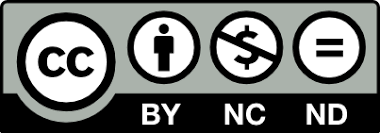DEVELOPING DEMOCRATIC CULTURE BASED ON DIVERSE TYPES OF EDUCATION – NON-FORMAL EDUCATION
Keywords:
democratic culture, non-formal education, intercultural competenceAbstract
Teaching and learning in a democratic and diverse environment mean facing the challenges of the 21st century. Therefore, to establish an appropriate democratic culture in this era of globalization and democratization, non-formal education has been accepted as a mechanism to enhance social beliefs, awareness, attitudes, values, living skills and even behaviour. Thus, the increase in diversity doesn’t only relate to race and ethnicity. However, it can include students of different religions, economic statuses, gender identities and language backgrounds. If we, teachers, are eager to acquaint our learners with democratic values, we should evolve their intercultural competence through education. Developing intercultural competence is not only about teaching a particular subject; it is also about knowing different ways through various types of education. This article highlights the benefits of implementing one of the ways of education, non-formal education, among the students of Chkhoria Public School located in Zugdidi municipality village Chkhoria. Moreover, we will also delve into the practice of non-formal education to evolve teaching and learning in a democratic atmosphere. Generally, acknowledging and respecting every student is crucial. We also know that students may be violently abused or vice versa for religion, economic status, language background, social beliefs, attitudes, etc. Therefore, the questions are as follows: - How can non-formal education support democratic culture in teaching and learning? - How can non-formal education reinforce skills such as empathy, flexibility/adaptability and conflict resolution? - Will development of intercultural competence through education be made more efficiently? I believe that it is possible to carry out the work in nonformal education. Much has been written on the benefits of this issue. In the training course -“Democratic Culture from Onlookers to Engaged and Active Citizens” (Germany 2017, Council of Europe), I learnt that non-formal education is essential to developing a democratic culture in our classes. We, teachers, can and are obliged to change passive onlookers into engaged and active citizens by enriching the learners’ awareness of the already mentioned issue. Accordingly, students learn and practice how to express empathy, adapt and resolve conflicts, use appropriate language, and speak benevolently and with compassion. For this reason, I decided to try this type of education in my teaching experience.
Full Text (PDF)
References
Pestalozzi series +3 – Developing intercultural competence through education;
Council of Europe – Competences For Democratic Culture: Living together as equals in a culturally diverse democratic society.
Drexel University School of Education – The Importance of Diversity and Cultural Awareness in the classroom https://drexel.edu/soe/resources/student-teaching/advice/importance-of-cultural-diversity-in-classroom/;
George Lucas Educational Foundation – The Power of a Democratic Classroom https://www.edutopia.org/article/power-democratic-classroom;
Dare – Democracy and Human Rights Education in Europe, Brussels 2020 Research Publication2021_DARE_BLUE-LINES_RFCDC.pdf;
GETMYUNI – Non-formal Education https://www.getmyuni.com/articles/non-formal-education












